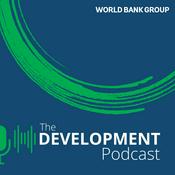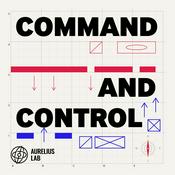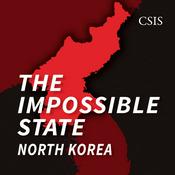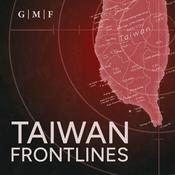139 Episoden
- Kumar frames the India–EU FTA as a deal India needed, not one it merely chose, arguing that with the multilateral trade system weakened, FTAs have become the practical route to secure market access and signal openness to investment. He places the EU among India’s “$100 billion club” trading partners and explains why this agreement fills a gap India cannot realistically close with China, and cannot replicate with the United States in the form of a full FTA.
On timing, he calls the early 2010s a missed opportunity but notes that current geopolitical conditions have raised India’s value for Europe, including Europe’s push to de-risk from China and the absence of an EU–U.S. FTA. A major thread is regulation: Kumar acknowledges the EU’s regulatory intensity, but argues India must adapt to global technical and sanitary standards, using the agreement’s timelines and technical assistance to reduce friction and help industry upgrade over time.
He clarifies the trade-offs that made the deal viable: core agriculture and dairy are left out due to political sensitivities on both sides; government procurement is excluded due to India’s constraints and federal realities; and investment protection and geographical indications are kept on separate tracks to avoid a more complex EU-wide ratification path. He also describes how negotiations manage domestic sensitivities through consultation with industry, transition periods, tariff-rate quotas, and product thresholds, particularly in sectors like autos, aiming to expose firms gradually to competition while pushing manufacturing to become more competitive.
In closing, Kumar argues the hard work starts after signing. He stresses that Indian industry must actually use the agreement’s tariff concessions, pointing to historically low utilization of FTAs—and that domestic reforms cannot be postponed if India wants the deal to deliver results. He highlights reforms in agriculture, labor implementation, power, and land acquisition, and ties this to a broader shift he sees globally: trade policy and security policy are increasingly moving into alignment, especially in a world of dual-use technology and tighter strategic partnerships.
Episode Contributors
Dinakar Peri is a fellow in the Security Studies program at Carnegie India.
Ambassador Mohan Kumar has an outstanding career in the Indian Foreign Service lasting 36 years which culminated in his being India’s Ambassador to France based in Paris. Under his watch, the Indo-French strategic partnership was strengthened and consolidated further in spheres such as defense, space, nuclear & solar energy, smart cities and investment. Earlier, Mohan Kumar was India’s Ambassador to the Kingdom of Bahrain where he witnessed and dealt with a strategically complex region characterized by events such as the “Arab Spring”.
Every two weeks, Interpreting India brings you diverse voices from India and around the world to explore the critical questions shaping the nation's future. We delve into how technology, the economy, and foreign policy intertwine to influence India's relationship with the global stage.
As a Carnegie India production, hosted by Carnegie scholars, Interpreting India, a Carnegie India production, provides insightful perspectives and cutting-edge by tackling the defining questions that chart India's course through the next decade.
Stay tuned for thought-provoking discussions, expert insights, and a deeper understanding of India's place in the world.
Don't forget to subscribe, share, and leave a review to join the conversation and be part of Interpreting India's journey. - AI progress is often measured by the number of pilots launched, but this episode argues the real unit of progress should be how many AI use cases are reliably in production and embedded into everyday systems. Shalini Kapoor distinguishes AI innovation (models, chips, and breakthroughs) from AI adoption, emphasizing that adoption is frequently harder because it demands institutional integration, behavior change, and clear accountability—especially when AI advice affects livelihoods, health outcomes, or legal decisions.
Tanvi Lall explains “pilot purgatory” as the frustrating middle state where use cases never move beyond controlled deployments. She shares how recurring barriers—compute constraints within real institutions (not just cloud credits), fragmented workflows, late-stage safety design, lack of sustained funding, and weak organizational readiness—prevent diffusion. The conversation highlights the UCAF approach to defining a use case as a commitment to improve a specific outcome for a specific persona in a specific context, and why trust and accountability are as central as the technology layer.
The episode also explores “horizontal enablers” that make scale possible—data readiness, multilingual language support, voice interfaces for last-mile access, workforce integration, and guardrails. A detailed example (Mahavistar in Maharashtra) illustrates what scaling can look like when government partnership, data pipelines, voice infrastructure, safeguards, and long-term funding align. Finally, the guests look ahead to what AI adoption in India could look like over the next five years, arguing that the most impactful AI will feel “ordinary”—quietly embedded into routine decisions—supported by shared adoption infrastructure rather than one-off pilots.
Episode Contributors
Nidhi Singh is a Senior Research Analyst at Carnegie India.
Shalini Kapoor is the Chief Strategist for Data and AI at the EkStep Foundation. Her work focuses on building practical pathways for AI adoption, with emphasis on institutional integration, accountable systems, and population-scale impact.
Tanvi Lall is the Director for Strategy at People Plus AI. Her work focuses on AI use cases, adoption barriers, and developing frameworks that help move AI from pilots to sustained deployment and real-world outcomes.
00:00 Introduction to AI Adoption Challenges
01:37 Understanding AI Adoption vs. Innovation
04:55 Pilot Purgatory: The Stagnation of AI Projects
08:48 Fragmented Adoption: Real-World Examples
12:13 Barriers to AI Adoption: Mindset and Behavior Change
16:01 Defining Good AI Use Cases
20:00 Horizontal Enablers for AI Success
26:26 Case Study: Mahavistar's Impact on Farmers
34:34 Future of AI Adoption in India
40:29 Optimism for AI Diffusion and Adoption
Readings
AI Adoption Journey for Population Scale by Shalini Kapoor and Tanvi Lall
Every two weeks, Interpreting India brings you diverse voices from India and around the world to explore the critical questions shaping the nation's future. We delve into how technology, the economy, and foreign policy intertwine to influence India's relationship with the global stage.
As a Carnegie India production, hosted by Carnegie scholars, Interpreting India, a Carnegie India production, provides insightful perspectives and cutting-edge by tackling the defining questions that chart India's course through the next decade.
Stay tuned for thought-provoking discussions, expert insights, and a deeper understanding of India's place in the world.
Don't forget to subscribe, share, and leave a review to join the conversation and be part of Interpreting India's journey. - As AI systems grow more powerful, the computational infrastructure behind them has become a strategic resource, one that is unevenly distributed across the world. This episode takes a deep look at the three layers of compute sovereignty: where data centers are located, who owns them, and who manufactures the chips that power them. Zoe explains how access to compute has quickly shifted from a technical issue to a core question of economic resilience and sovereignty.
The conversation unpacks new research showing how few countries actually host advanced AI-relevant data centers, and how global dependencies on companies like Nvidia shape strategic decisions. Adarsh and Zoe discuss the implications for countries that are “compute deserts,” the growing push toward sovereign capabilities, and why a binary view of sovereignty is misleading. They also explore how countries are attempting to secure compute, through public investment, regional collaborations, and new transnational initiatives.
Finally, the episode examines the emerging tension between the pursuit of compute sovereignty and the environmental and socioeconomic costs of data centers. As global investments flow into AI infrastructure, Zoe argues for a more grounded, people-centric approach to AI strategy, one that balances access, sustainability, and long-term national priorities amid evolving questions about the future of the AI industry.
Episode Contributors
Adarsh Ranjan is a research analyst at Carnegie India where his research focuses on AI and emerging technologies, digital transformation, and technology partnerships. His current research explores India’s evolving policy on AI compute and digital transformation in Global South countries.
Zoe Jay Hawkins is the co-founder and deputy executive director of the Tech Policy Design Institute. Zoe brings extensive experience designing tech policy from government, big tech, academic and think tank perspectives. Zoe worked for the Australian government across communications, innovation, and foreign policy portfolios, as a ministerial adviser and in the public service. She is a Research Associate at the University of Oxford and an expert researcher for the OECD, having started her career at the Australian Strategic Policy Institute.
Every two weeks, Interpreting India brings you diverse voices from India and around the world to explore the critical questions shaping the nation's future. We delve into how technology, the economy, and foreign policy intertwine to influence India's relationship with the global stage.
As a Carnegie India production, hosted by Carnegie scholars, Interpreting India, a Carnegie India production, provides insightful perspectives and cutting-edge by tackling the defining questions that chart India's course through the next decade.
Stay tuned for thought-provoking discussions, expert insights, and a deeper understanding of India's place in the world.
Don't forget to subscribe, share, and leave a review to join the conversation and be part of Interpreting India's journey. - The conversation explores how cybersecurity is integral to space operations, drawing parallels with traditional air defense strategies. Blount discusses the historical context of cybersecurity in space, the role of international law, and the challenges posed by non-state actors. He emphasizes the need for a holistic approach to cybersecurity that includes both space-based and terrestrial components, and the importance of international cooperation in addressing these challenges.
Blount warns of the increasing threats from cyber-attacks on space assets and the need for robust legal frameworks to ensure accountability and security. He calls for the development of comprehensive cybersecurity strategies that integrate space and cyberspace, ensuring resilience against a wide range of threats.
How can nations protect their space assets from cyber threats? What role does international law play in governing space cybersecurity? How should countries collaborate to enhance global space security?
Episode Contributors
P. J. Blount is assistant professor of space law at Durham University. He is also a visiting scholar at Mae Fah Luang University in Chiang Rai, Thailand. Previously, he served as a Lecturer in Law at Cardiff University, an adjunct professor for the LL.M. in the Air and Space Law at the University of Mississippi School of Law, a Postdoctoral Researcher at the University of Luxembourg, an adjunct professor at Montclair State University, and a Visiting Scholar at the Beijing Institute of Technology School of Law.
Tejas Bharadwaj is a senior research analyst with the Technology and Society Program at Carnegie India. He focuses on space law and policies and also works on areas related to AI in military domain, Defence tech and Cybersecurity.
Every two weeks, Interpreting India brings you diverse voices from India and around the world to explore the critical questions shaping the nation's future. We delve into how technology, the economy, and foreign policy intertwine to influence India's relationship with the global stage.
As a Carnegie India production, hosted by Carnegie scholars, Interpreting India, a Carnegie India production, provides insightful perspectives and cutting-edge by tackling the defining questions that chart India's course through the next decade.
Stay tuned for thought-provoking discussions, expert insights, and a deeper understanding of India's place in the world.
Don't forget to subscribe, share, and leave a review to join the conversation and be part of Interpreting India's journey. - The episode challenges the familiar “open versus closed” framing of AI systems. Sharma argues that openness is not inherently good or bad—it is an instrumental choice that should align with specific policy goals. She introduces a seven-part taxonomy of AI—compute, data, source code, model weights, system prompts, operational records and controls, and labor—to show how each component interacts differently with innovation, safety, and governance. Her central idea, differential openness, suggests that each component can exist along a spectrum rather than being entirely open or closed. For instance, a company might keep its training data private while making its system prompts partially accessible, allowing transparency without compromising competitive or national interests. Using the example of companion bots, Sharma highlights how tailored openness across components can enhance safety and oversight while protecting user privacy. She urges policymakers to adopt this nuanced approach, applying varying levels of openness based on context—whether in public services, healthcare, or defense. The episode concludes by emphasizing that understanding these layers is vital for shaping balanced AI governance that safeguards public interest while supporting innovation.
How can regulators determine optimal openness levels for different components of AI systems? Can greater transparency coexist with innovation and competitive advantage? What governance structures can ensure that openness strengthens democratic accountability without undermining safety or national security?
Episode Contributors
Chinmayi Sharma is an associate professor of law at Fordham Law School in New York. She is a nonresident fellow at the Stoss Center, the Center for Democracy and Technology, and the Atlantic Council. She serves on Microsoft’s Responsible AI Committee and the program committees for the ACM Symposium on Computer Science and Law and the ACM Conference on Fairness, Accountability, and Transparency.
Shruti Mittal is a research analyst at Carnegie India. Her current research interests include artificial intelligence, semiconductors, compute, and data governance. She is also interested in studying the potential socio-economic value that open development and diffusion of technologies can create in the Global South.
Suggested Readings
Unbundling AI Openness by Parth Nobel, Alan Z. Rozenshtein, and Chinmayi Sharma.
Tragedy of the Digital Commons by Chinmayi Sharma.
India’s AI Strategy: Balancing Risk and Opportunity by Amlan Mohanty and Shatakratu Sahu.
Every two weeks, Interpreting India brings you diverse voices from India and around the world to explore the critical questions shaping the nation's future. We delve into how technology, the economy, and foreign policy intertwine to influence India's relationship with the global stage.
As a Carnegie India production, hosted by Carnegie scholars, Interpreting India, a Carnegie India production, provides insightful perspectives and cutting-edge by tackling the defining questions that chart India's course through the next decade.
Stay tuned for thought-provoking discussions, expert insights, and a deeper understanding of India's place in the world.
Don't forget to subscribe, share, and leave a review to join the conversation and be part of Interpreting India's journey.
Weitere Regierung Podcasts
Trending Regierung Podcasts
Über Interpreting India
In Season 4 of Interpreting India, we continue our exploration of the dynamic forces that will shape India's global standing. At Carnegie India, our diverse lineup of experts will host critical discussions at the intersection of technology, the economy, and international security. Join us as we navigate the complexities of geopolitical shifts and rapid technological advancements. This season promises insightful conversations and fresh perspectives on the challenges and opportunities that lie ahead.
Podcast-WebsiteHöre Interpreting India, Funkkreis: Podcast der Bundeswehr und viele andere Podcasts aus aller Welt mit der radio.de-App

Hol dir die kostenlose radio.de App
- Sender und Podcasts favorisieren
- Streamen via Wifi oder Bluetooth
- Unterstützt Carplay & Android Auto
- viele weitere App Funktionen
Hol dir die kostenlose radio.de App
- Sender und Podcasts favorisieren
- Streamen via Wifi oder Bluetooth
- Unterstützt Carplay & Android Auto
- viele weitere App Funktionen


Interpreting India
Code scannen,
App laden,
loshören.
App laden,
loshören.








































